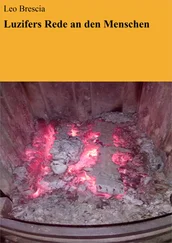Jean Rouaud - Of Illustrious Men
Здесь есть возможность читать онлайн «Jean Rouaud - Of Illustrious Men» весь текст электронной книги совершенно бесплатно (целиком полную версию без сокращений). В некоторых случаях можно слушать аудио, скачать через торрент в формате fb2 и присутствует краткое содержание. Год выпуска: 2011, Издательство: Arcade Publishing, Жанр: Современная проза, на английском языке. Описание произведения, (предисловие) а так же отзывы посетителей доступны на портале библиотеки ЛибКат.
- Название:Of Illustrious Men
- Автор:
- Издательство:Arcade Publishing
- Жанр:
- Год:2011
- ISBN:нет данных
- Рейтинг книги:4 / 5. Голосов: 1
-
Избранное:Добавить в избранное
- Отзывы:
-
Ваша оценка:
- 80
- 1
- 2
- 3
- 4
- 5
Of Illustrious Men: краткое содержание, описание и аннотация
Предлагаем к чтению аннотацию, описание, краткое содержание или предисловие (зависит от того, что написал сам автор книги «Of Illustrious Men»). Если вы не нашли необходимую информацию о книге — напишите в комментариях, мы постараемся отыскать её.
Of Illustrious Men — читать онлайн бесплатно полную книгу (весь текст) целиком
Ниже представлен текст книги, разбитый по страницам. Система сохранения места последней прочитанной страницы, позволяет с удобством читать онлайн бесплатно книгу «Of Illustrious Men», без необходимости каждый раз заново искать на чём Вы остановились. Поставьте закладку, и сможете в любой момент перейти на страницу, на которой закончили чтение.
Интервал:
Закладка:
The 403 was coming to the end of the road. After it had religiously crossed the hundred-thousand-kilometer line it had carried on for a few more months, but its exceptional longevity was actually an indication of its imminent demise. It was feeling the weight of the kilometers more and more. It was as greedy for oil as an old lady is for sweets. One after the other its parts succumbed, and Joseph would replace them on Sundays. We suspected that Paris would be the 403’s swan song. In order to spare it, rather than driving the five hundred kilometers in one go, on the first evening we broke our journey between Chartres and Versailles. The next day, at a jog trot, we entered the capital.
Travelers are very often stationary travelers. They settle wherever planes and boats set them down. That was how the Breton immigrants came to inhabit the surroundings of the Gare Montparnasse. Our guide, who never did anything like anyone else, took us, on the contrary, to the Porte Doree district, to a hotel whose shutters, lit by the streetlights, traced two luminous ladders on the bedroom ceiling. The incessant rumble of the cars going by until late at night was a bit like the familiar sound of the ocean. And, so that we shouldn’t feel too disorientated, it was raining in Paris. Which wasn’t at all to the liking of the animals in the nearby Vincennes Zoo, where we began our visit to the capital. Which wasn’t to our liking, either, because as a result the animals had deserted the artificial rocks that provided them with their decor of an African operetta. We found some compensation in the polar bears and seals, who welcomed this August rain and dived into their dubious-looking pools as gracefully as mermaids. We walked slowly along the paths, deciphering the labels on the cages, testing our knowledge, pleased to confirm that the great lanky thing with the long speckled neck really was a giraffe. Although we were walking so slowly, Father kept stopping, letting us get a few paces ahead of him. Turning around, we could see pain written on his face. We saw him tip a few aspirins into his hand and swallow them without water, with a sudden backward toss of his head. Even the antics of the baby monkeys, which with three somersaults landed perched on their placid mothers’ heads, couldn’t make him smile. The only thing that got an amused grin from him was when a keeper, wearing an outsize cap, asked a group massed in front of a cage to move on, and after a silence added, “Make way for the stars!” Then, delighted with the impression he’d made, with a theatrical gesture he cracked an imaginary ringmaster’s whip.
After this introduction to wildlife we were ready to confront the big city. Of the obligatory sights, we saw neither the Eiffel Tower — except for its silhouette, which looked like an overgrown derrick over the rooftops — nor the waxworks museum, nor the Sacre-Coeur, not even making a detour by way of the Moulin Rouge, the Cour Carree of the Louvre, nor the Luxembourg Gardens. It was as if his schedule followed his thoughts: Notre-Dame, the Palace of Discovery, the Invalides, and, outside the city walls, a visit to the Chateau de Fontainebleau that, later, we found difficult not to interpret as a farewell ceremony.
Braving the Paris traffic with the 403 in its present state wouldn’t have been reasonable. So, sticking closely to our great man, we plunged down into the metro. Once past the intimidating mob in front of the ticket windows, while we were deciding on our route we were pleasantly surprised to find ourselves on familiar ground: the electrified metro map — on which bulbs of different colors, each line having its own, light up at the touch of a button and indicate the ideal itinerary between two stations — was the counterpart, in a more sophisticated version, of his map of Brittany. Thanks to that we felt a bit less provincial, each of us unwittingly familiar with the capital, as if we were already in complete command of the very best method of traveling in Paris. We recognized this as his way of marking out our course, of preparing us by a series of signs for other worlds, like the shop on two levels, incongruous in a small community — the incessant warfare he carried on against routine and the inability of most people to challenge the existing order of things. He had no hesitation, for instance, in getting rid of two antique but not very practical armoires on the first floor landing and replacing them with a monumental storage unit he had himself designed. It was of doubtful elegance, but it met all our needs, from clothes closet to linen chest, and it possessed a system of interior lighting operated by opening and closing its doors.
But the similarity between the two maps was enough to set him dreaming; at the same time it acknowledged his creativity and cheated him of his invention. Tapping the keys corresponding to the stations, trying out the different combinations, he even let several people go before him so as not to be disturbed in his privileged dialogue with the machine. You didn’t have to be much of a wizard to guess that he was studying the possibility of electrifying his map of Brittany in the same way: instead of map pins with different-colored heads and cotton thread replicating Ariadne’s clue, a string of little Christmas tree lights would indicate his schedule for the coming week. For the modern man that he was, this was logical progress. But he made a funny little face, a contraction of his lips, which we took to mean that he had already given up on the idea. It wasn’t in his line, that complicated network of connections and electric wires — or it was too involved, or he was suddenly overcome by lassitude. And after all, what was the point? Hadn’t he already considered retiring, abandoning his long odyssey and accepting his friend’s offer to succeed him as director of the Random hospital-cum-old-people’s-home. There would be plenty of illuminated signs and flashing lights on the switchboard and in the staff room. There would be no shortage of opportunities to use his talents as an inventor. As for his future route, he would only have to walk three hundred yards. No need to put up an ordnance survey map in his office for that.
From the Porte Dorée to the Invalides was simple, too. No changes. Direct line. Presumably, the site of the monument had been judiciously chosen. We found a Life of Napoleon in the library, its jacket illustrated by Baron Gros’s picture of a disheveled Bonaparte crossing the Bridge of Areola and casting an anxious eye behind him, worried his men might not be following. Which indeed would have put a premature end to his career. But they did follow him. They followed him so well that he was now reposing, a cuckoo in the luxurious nest of Louis XIV, under Hardouin-Mansart’s gigantic gilded dome, in his red porphyry mausoleum, delivered up to the curiosity of the crowd congregated at the railing of the circular gallery to admire the imperial ashes down below, in the center of the open crypt — even if in actual fact no one, not even the English, ever thought of cremating his body: it must have been the trauma of Joan of Arc. But “the ashes” sounds better than “the remains,” which makes you think of the leftovers that no one ever knows what to do with. Although it’s true that no one really knew what to do with the guest of Saint Helena. And yet, apart from this piece of workmanship, Napoleon didn’t seem to occupy a very special place in our family pantheon, unless he held one for Cousin Rémi, whose birthday fell on the same day as the coronation and the battle of Austerlitz, a fact he never failed to remind us of every year, perhaps as a veiled response to his cousin Joseph who was born on 2 /22 /22 and who saw this remarkable sequence as a sort of mark of destiny, a magic formula, which it certainly wasn’t when you consider his short lease on life.
Читать дальшеИнтервал:
Закладка:
Похожие книги на «Of Illustrious Men»
Представляем Вашему вниманию похожие книги на «Of Illustrious Men» списком для выбора. Мы отобрали схожую по названию и смыслу литературу в надежде предоставить читателям больше вариантов отыскать новые, интересные, ещё непрочитанные произведения.
Обсуждение, отзывы о книге «Of Illustrious Men» и просто собственные мнения читателей. Оставьте ваши комментарии, напишите, что Вы думаете о произведении, его смысле или главных героях. Укажите что конкретно понравилось, а что нет, и почему Вы так считаете.












